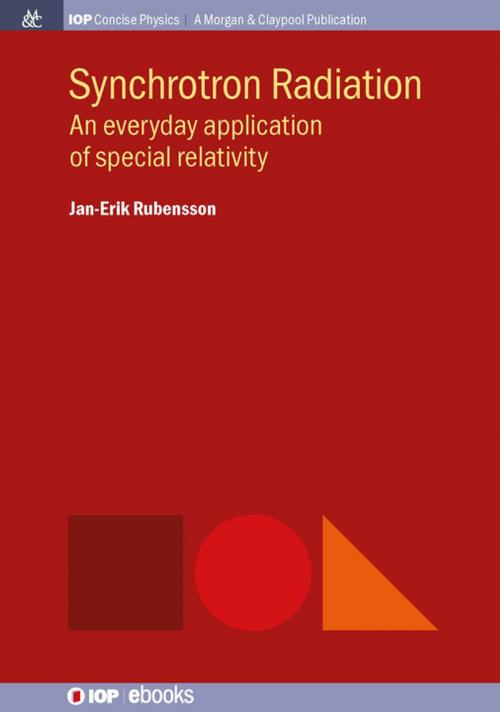Synchrotron Radiation
An Everyday Application of Special Relativity
Nonfiction, Science & Nature, Science, Physics, Radiation, General Physics| Author: | Jan-Erik Rubensson | ISBN: | 9781681741796 |
| Publisher: | Morgan & Claypool Publishers | Publication: | August 1, 2016 |
| Imprint: | IOP Concise Physics | Language: | English |
| Author: | Jan-Erik Rubensson |
| ISBN: | 9781681741796 |
| Publisher: | Morgan & Claypool Publishers |
| Publication: | August 1, 2016 |
| Imprint: | IOP Concise Physics |
| Language: | English |
Synchrotron radiation is the name given to the radiation which occurs when charged particles are accelerated in a curved path or orbit. Classically, any charged particle which moves in a curved path or is accelerated in a straight-line path will emit electromagnetic radiation. Various names are given to this radiation in different contexts. Thus circular particle accelerators are called synchrotrons, this is where charged particles are accelerated to very high speeds and the radiation is referred to as synchrotron radiation.
Suitable for a summer short course or one term lecture series this text introduces the subject, starting with some historical background then covering basic concepts such as flux, intensity, brilliance, emittance and Liouville's theorem. The book then covers the properties of synchrotron radiation, insertion devices, beamlines and monochromators before finishing with an introduction to free electron lasers and an overview of the most common techniques and applications of this technology.
Synchrotron radiation is the name given to the radiation which occurs when charged particles are accelerated in a curved path or orbit. Classically, any charged particle which moves in a curved path or is accelerated in a straight-line path will emit electromagnetic radiation. Various names are given to this radiation in different contexts. Thus circular particle accelerators are called synchrotrons, this is where charged particles are accelerated to very high speeds and the radiation is referred to as synchrotron radiation.
Suitable for a summer short course or one term lecture series this text introduces the subject, starting with some historical background then covering basic concepts such as flux, intensity, brilliance, emittance and Liouville's theorem. The book then covers the properties of synchrotron radiation, insertion devices, beamlines and monochromators before finishing with an introduction to free electron lasers and an overview of the most common techniques and applications of this technology.















